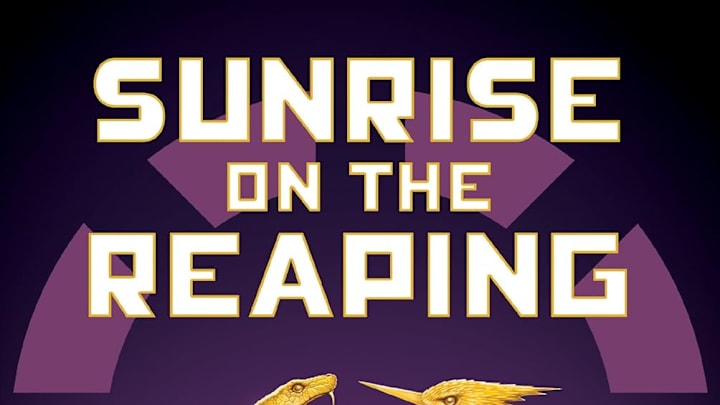Sunrise on the Reaping, the latest addition to The Hunger Games world of storytelling, initially presented a big question upon its initial announcement last year: Do we really need this?
After all, Suzanne Collins' original trilogy of books -- and the four movies they were adapted into not much later -- was revolutionary enough to allow the author to never have to tell another Hunger Games story again. Fast-forward, and Collins continued filling out her fictional world with A Ballad of Songbirds and Snakes -- a prequel focused on young Snow during the early games. There were subtle references to the original books, but the story mainly aimed to establish Snow not as an antagonist worthy of empathy, but instead a villain in the making who committed the ultimate crime: Witnessing evil, doing nothing about it, then agreeing to join it.
In Collins' latest novel, Haymitch -- another District 12 victor, of which now we've met all three -- suffers through his own Hunger Games and comes out the other side a broken, detached husk of his former self. We already knew what happened to him later, having met him in Katniss's story decades later. But the beauty of Collins' prequels is that she has now created a world of endless possibilities -- the potential for dozens of intertwining stories that not only enrich each other, but also further our understanding of our own world. The world the author speaks directly to in all her Hunger Games works, even though these stories technically take place in a fictional universe.
I call this the Star Wars Effect. The Hunger Games and Star Wars have plenty in common if you line them up and ask yourself some tough questions. Both chronicle ordinary people thrust into battles they did not ask to fight, oppressed by overseers who wish to punish them for sins generations before them committed. Both feature heroes that never asked to lead rebellions, leaving them forever changed in the aftermath of destructive victories.
But now, thanks to Collins' two prequel novels, both significantly benefit from telling stories out of order -- of telling one tale, then going back and telling a different one that deepens your appreciation of the ones that came before it. We first see Anakin Skywalker redeemed by the love of his son, then watch the story of how he came to embrace the dark side in the first place. Similarly, Sunrise on the Reaping shows us why we never heard of District 12's first victor before Songbirds. We suddenly come to the heart-shattering realization that Haymitch's addiction in later years may have actually begun as a familiar comfort-turned-vice.
And that's only scratching the surface of what this book both reveals and implies, without spoiling its greatness. We've been blessed with an author who seems much more interested in using her books to empower her readers than churning out stories to expand her bank accounts. When Collins has something to say, she'll say it. And now, more than ever, it's vital that we listen.
What better time, also, to revisit the rest of these stories -- to find the parallels between that world and ours that you may have missed when you may have first read them as a teen? To get a full picture of how important it is to engage with stories that eerily mirror our current states of existence. To understand that even if the Hunger Games themselves don't become our fate, plenty of terrible things will if we do not resist to being told our lives matter less than those on the metaphorical thrones of our modern regimes.
A prequel, after all, does what we could all stand to do better. Forcing us to look to the past to ensure not just brighter futures, but instead that we have futures at all.
